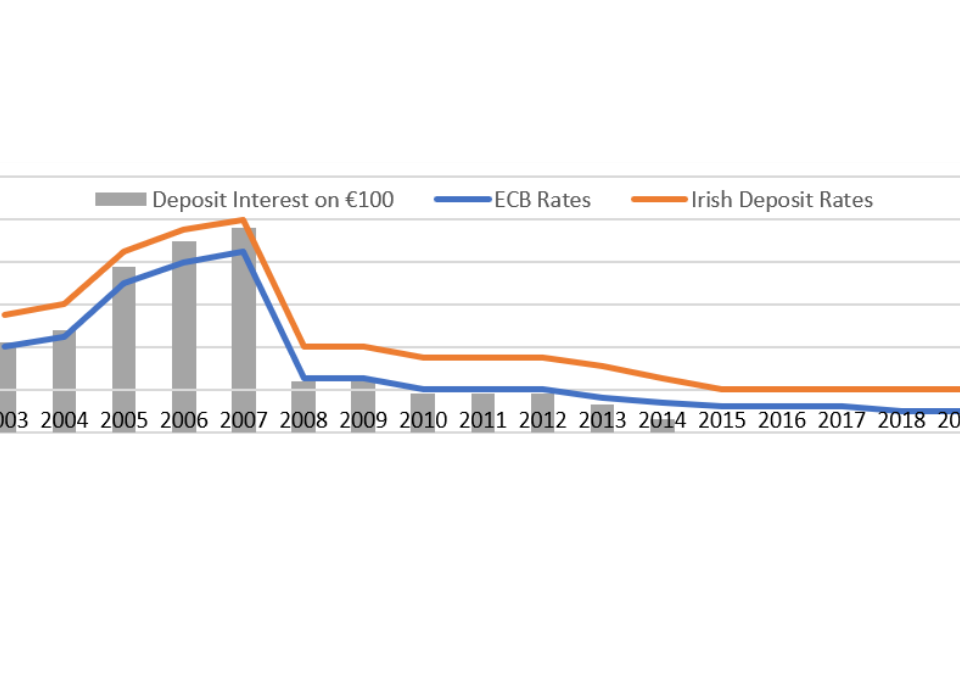Written by Rockbridge Financial Planning based in Dublin 02.
|
Last years Budget, like most Budget’s nowadays, was well documented in advance. While it was expected that there would be some relief with respect of Income tax and USC, this was going to have to be paid for elsewhere as the net funds at the Government’s disposal are not that overwhelming. As with the last 2 year’s Budgets, ‘Brexit’ remains the fundamental unknown and the Government was always going to be relatively prudent regarding its ‘giveaways’. Overall though it is following with the Government’s plan to stabilise the tax base and increase expenditure on capital projects. Positive news is that we now have record employment. Tax revenues are on course (5.2% increase year on year) but we are susceptible to outside economic factors. A rainy-day fund is being established with €1.5bn starting from 2019 and an annual €0.5bn added from the Exchequer, this had previously been flagged. A balanced Budget is expected for Budget 2020. There will be €700m raised in tax revenues. €110m of measures will be aimed at ‘Brexit Measures’ across a number of departments. A Local Property Tax (LPT) review is currently under review and the results will be made public with any increases ‘affordable and moderate’ according to the Minister. For the fourth year in a row the only tax increase announced in the budget was the increasing of a packet of 20 cigarettes by 50c. The 9% VAT rate for the tourism and hospitality will revert back to 13.5% from 01 January 2019. There was no increase in Carbon Tax but there will be a long term ‘Climate Change’ plan. This summary will focus primarily on the Taxation measures with a brief outline of the Public Expenditure measures presented by Minister Donohoe. Summary of measures The main features of Budget 2019 as they will affect you in business and in your personal life are as follows;
Income Tax & Levies There have been no changes to the rates of income tax. The point at which a person enters the higher tax rate has increased by €750 from €34,550 to €35,300, creating a potential tax saving of €150. Entry point to USC remains at €13,000. The 4.75% rate of USC has been reduced by 0.25% to 4.5%. The entry level to the 4.75% rate of USC has been increased to €19,874 in order to take full-time workers on the minimum wage out of the top rate of USC. The Earned Income Credit has been increased by €200 to €1,350. This credit is available to taxpayers earning self-employed trading or professional income and to business owners / managers who are ineligible for a PAYE credit on their salary income. The Home Carer Credit is being increased by €300 from €1,200 to €1,500. VAT The 9% rate applicable to certain service industries (tourism / hospitality etc) will cease and the rate will revert back to 13.5% as of 01 January 2019. Certain items will remain at 9%, these items include newspapers and sporting facilities etc. The VAT rate on electronic newspapers will reduce from 23% to 9%. Therefore services such as hotels, cafés and hairdressing will now be liable at the 13.5% rate. Capital Gains Tax (CGT) No changes were announced with regard to CGT rates. Capital Acquisitions Tax (CAT) Group A threshold (parent to child) is to be increased by €10k to €320,000. Corporation Tax The Government has stated its commitment to maintaining the 12.5% Corporation Tax rate. Start up relief to be continued to 2021. Agri Measures Income averaging is being made assessible to farmers who have non-farm trading income. Stock relief measures to continue for a further 3 years. Stamp Duty No changes in Stamp Duty rates. Customs & Excise Excise duty on a packet of 20 cigarettes [and pro-rata on other tobacco products] is being increased by 50c with effect from 10 October 2018. There will be no change on Excise duty on alcohol, petrol or diesel. Pensions Tax relief at the marginal rate is to remain on pension contributions. Brief outline on the Public Expenditure measures Housing and Health were given a priority in this budget.
There was a detailed public expenditure programme announced and the above is the top issues that will face the majority of people. |
Budget 2017/2018
10 October 2017
This year’s Budget, like most Budget’s nowadays, was well documented in advance. While it was expected that there would be some relief with respect of Income tax and USC, this was going to have to be paid for elsewhere as the net funds at the Government’s disposal are not that overwhelming.
As with last year’s Budget, ‘Brexit’ remains the fundamental unknown and the Government was always going to be prudent regarding its ‘giveaways’. Overall though it is following with the Government’s plan to stabilise the tax base and increase expenditure on capital projects.
Positive news is that employment has risen for 19 consecutive quarters and unemployment is at the lowest level since 2008 and is heading towards ‘full employment’.
There will be €830m raised in tax revenues with €300m in tax reductions in this Budget.
A ‘Brexit Loan Scheme’ funded by €300m to be introduced that is available to SME’s with an exposure to UK trade to fund working capital at competitive interest rates.
In terms of a timetable, it is expected that the Finance Bill will be published on Thursday 19 October 2017 and for it to pass through the Houses of the Oireachtas by mid-December.
As announced in Budget 2017 [last year] there will be an introduction of a ‘Sugar Tax’ in April 2018.
For the third year in a row the only tax increase announced in the budget was the increasing of a packet of 20 cigarettes by 50c.
This summary will focus primarily on the Taxation measures with a brief outline of the Public Expenditure measures presented by Minister Donohoe.
Summary of measures
The main features of Budget 2018 as they will affect you in business and in your personal life are as follows;
- Standard Rate Cut-Off Point increases by €750
- Entry point to USC to remain unchanged as does the lowest rate
- USC rates change from 2.5% to 2% and 5% to 4.75%. Entry point to 4.75% USC rate raised from €18,772 to €19,372
- Stamp Duty to rise to 6% from 2% on commercial property from 11 October 2017
- Changes made to Vacant Site Levy, increase from 3% to 7% for 2nd and subsequent years
- Pre-letting expenses to be allowed in order to bring houses into rental market
- Mortgage interest relief to end in 2020, tapering down until then
- No change to the 12.5% Corporation tax rate
- Earned Income credit up €200 to €1,150 for self-employed
- Home Carer tax credit up €100 to €1,200
- There is to be no change in the VAT rates, which includes the keeping of the 9% rate for the tourism / hospitality sector [change in VAT rate for sunbeds]
- Tax on sugar, sweets and drinks to be introduced in line with UK in April 2018 – 30c per litre on drinks with 8g of sugar per 100ml
- Price of 20 cigarettes to increase by 50c from 11 October 2017
- No increase in excise duty on alcohol
- No increase in excise duty on petrol or diesel
- Pension tax relief to remain at the marginal rate of tax
- 85% social welfare Christmas bonus in 2017 [same as 2016]
- 50c reduction in subscription charges
- All Social Welfare (including State pensions) to increase by €5 per week from March 2018
Income Tax & Levies
There have been no changes to the rates of income tax. The point at which a person enters the higher tax rate has increased by €750 from €33,800 to €34,550, creating a potential tax saving of €150.
Entry point to USC remains at €13,000. The 2.5% rate of USC has been reduced by 0.5% to 2%. The 5% rate of USC has been reduced by 0.25% to 4.75%. The entry level to the 4.75% rate of USC has been increased to €19,372 in order to take full-time workers on the minimum wage out of the top rate of USC [Table 4, page 8].
A working group is to be established with a view to coming up with a plan to amalgamate USC and PRSI over the medium term.
The Earned Income Credit has been increased by €200 to €1,150. This credit is available to taxpayers earning self-employed trading or professional income and to business owners / managers who are ineligible for a PAYE credit on their salary income.
The Home Carer Credit is being increased by €100 from €1,100 to €1,200.
0% rate on BIK on electric vehicles for 2018 with a review thereafter.
Rental Income
The allowing of pre-letting expenses on properties vacant for over 12 months to enable to bring these properties into the rental market with a cap of €5k per property to be allowed with a clawback if property withdrawn from rental market within 4 years.
VAT
The 9% rate applicable to certain service industries (tourism / hospitality etc) will continue in 2018. Last year it was stated that the need for such a rate was less important today than it was when it was introduced. I would therefore expect this to change in the coming years. The fall in the value of Sterling is the main reason that I suspect that it has remained in this budget.
The VAT rate for the use of sunbeds has increased from 13.5% to 23% as a policy introduced to acknowledge the Cancer risks sunbeds present.
VAT reclaim scheme to be introduced for Charities in 2019 for VAT incurred in 2018 on a pro-rata basis on non-State income to total income.
Capital Gains Tax (CGT)
No changes were announced with regard to CGT rates.
The 7-year period for owners to enjoy full CGT relief has been reduced to 4 years which allows owners to sell between years 4 and 7 and obtain relief.
Capital Acquisitions Tax (CAT)
No changes were announced with regard to CAT rates or thresholds and no major changes to reliefs.
Corporation Tax
The Government has stated its commitment to maintaining the 12.5% Corporation Tax rate.
The accelerated capital allowance scheme introduced to incentivise companies to invest in energy efficient equipment is to continue to 2020.
Stamp Duty
Stamp Duty on commercial property to increase from 2% to 6% from 11 October 2017. [Peak rate in 2008 was 9%].
Consanguinity relief is being retained, as is Young Trained Farmer Relief.
Mortgage Interest Relief
Mortgage interest relief will end in 2020 and will taper down as follows;
- 75% of existing relief will continue in 2018
- 50% of existing relief will continue in 2019
- 25% of existing relief will continue in 2020
Customs, Excise & Sugar Tax
Excise duty on a packet of 20 cigarettes [and pro-rata on other tobacco products] is being increased by 50c with effect from 11 October 2017.
There will be no change on Excise duty on alcohol, petrol or diesel.
The Sugar tax announced in last year’s budget will come into effect in April 2018 at the same time as the UK, subject to State Aid approval measures. This will be as follows;
- 30c per litre on drinks with over 8g of sugar per 100ml
- 20c per litre on drinks with between 5g and 8g of sugar per 100ml
Pensions
Tax relief at the marginal rate is to remain on pension contributions.
Brief outline on the Public Expenditure measures
Housing was given a priority in this budget with an allocation of €1.83b. 16.6% of budget expenditure allocated to Education in an attempt to reduce teacher pupil ratios to 26:1.
- Social Welfare payments – All payments to increase by €5 per week from last week in March 2018
- Social Welfare bonus – 85% Christmas bonus will be paid to social welfare recipients in 2017 [no change from 2016]
- Subscription charges – Reduced from €2.50 to €2
- Drugs Payment Scheme – Threshold reduced from €144pm to €134pm
- Telephone allowance – €2.50 increase
There was a detailed public expenditure programme announced and the above is the top issues that will face the majority of people.




